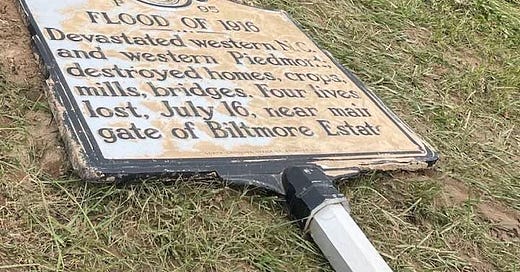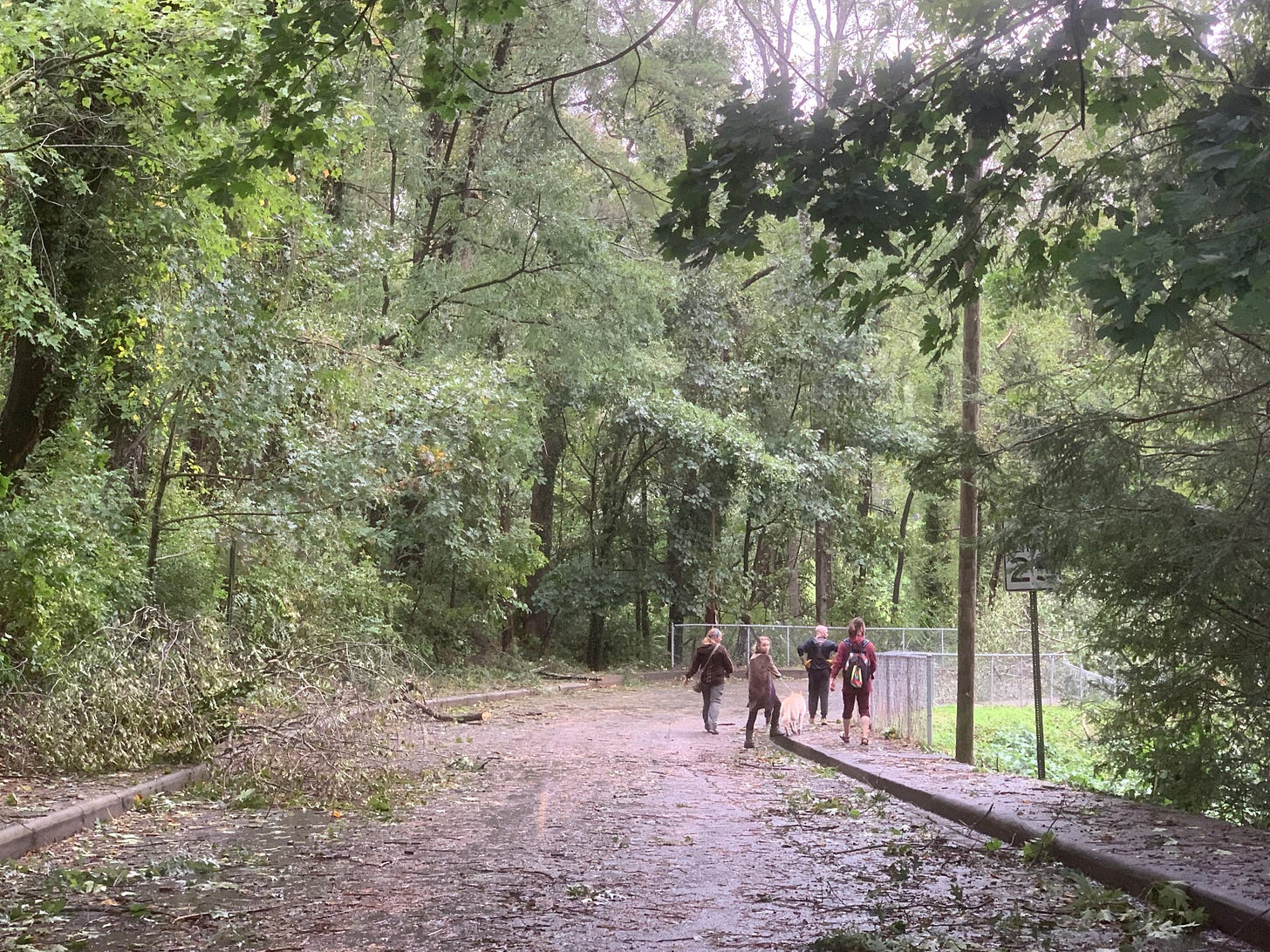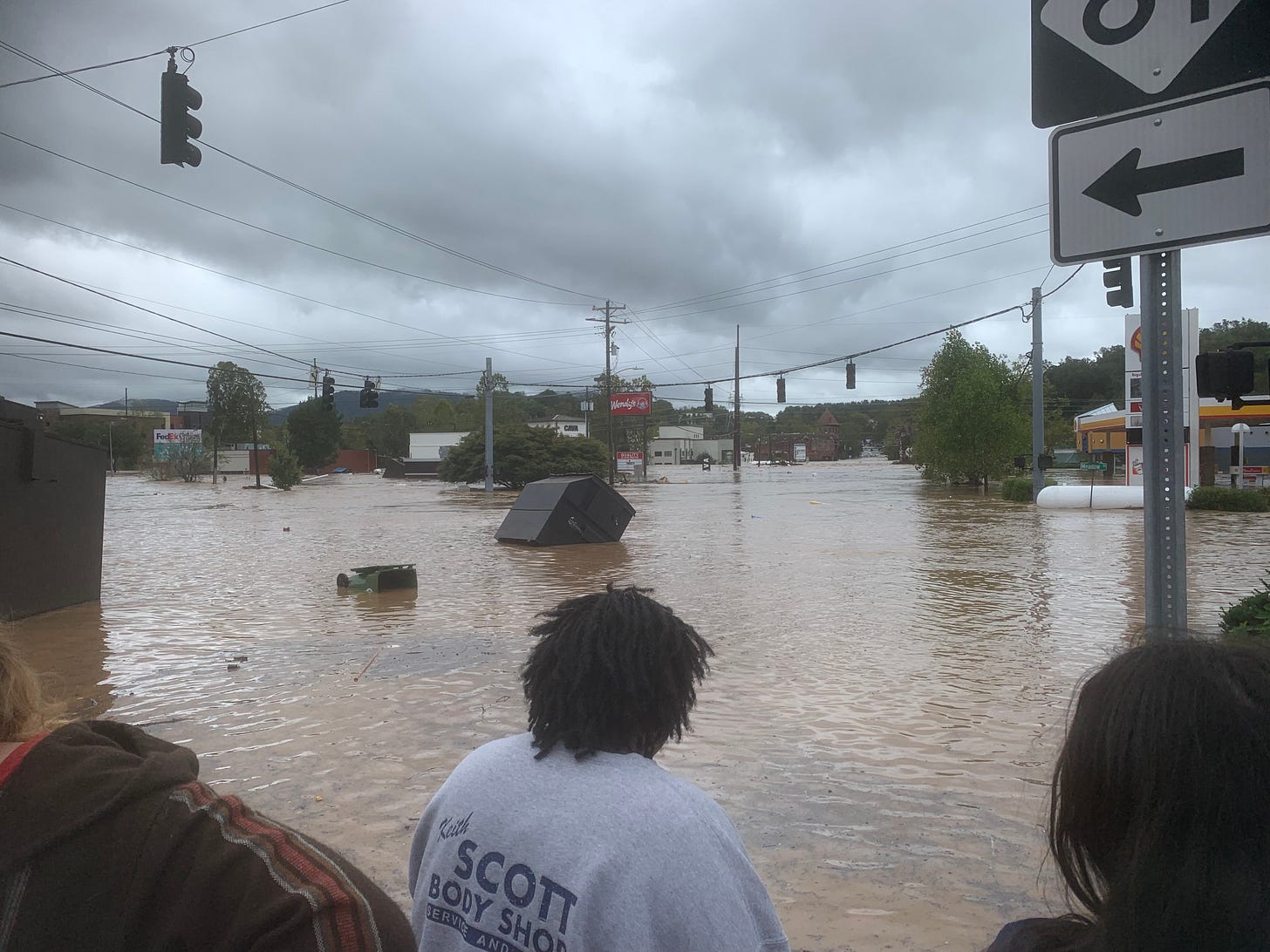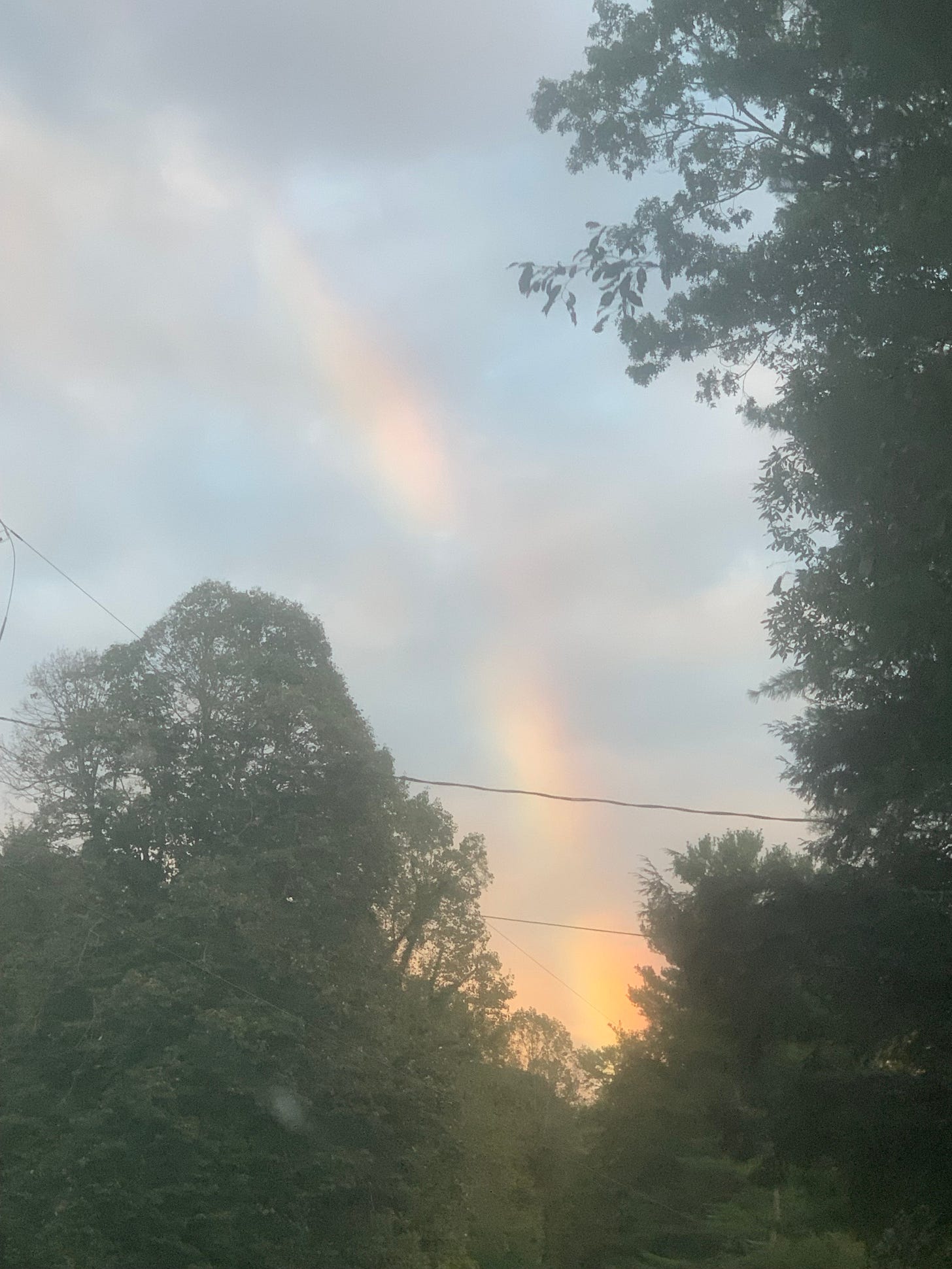I am writing this post under abnormal circumstances. Asheville, NC, along with several small towns in the greater WNC area, have been decimated by Hurricane Helene. Me and my closest circle of friends are relatively unscathed, but we have no power or running water and cell service just returned yesterday. We got very lucky. The official death count hasn’t even begun to reflect what many of us believe to be the loss of thousands. Low income, houseless, and rural communities are the most likely to be affected by this disaster as the relief forces are being mostly dispatched to the city centre and areas closest to it. My friends and I are doing what we can to support each other and the larger community. Yesterday I remembered that what I do best for others is using my voice. Here’s the weekly article, a few hours late and in an unusual format, but here nonetheless.
I remember Katrina.
I remember more than anything how surreal it was, watching the floods from a flat television screen across my living room. I was ten. I didn’t feel much of anything about it—how could I, without an embodied context of what it was like to lose everything, to have your whole world turned upside down overnight?
I remember Katrina. I remember 9/11. I remember the great fires in California. But I don’t, really. Because a disaster isn’t real until it comes to your doorstep. Until it swells the local river full to bursting, until the dams break and the water’s sardonic glimmer from all the spilled oil eats the sun’s rays and washes barn walls and felled trees and statues away.
Since the storm hit a week ago, my miraculously unscathed house has become a base camp of sorts—a place where we can combine and redistribute resources. We have been running ourselves ragged. The harsh truth looms over us all: you can’t save everyone. Least of all your own friends from whatever grief, anger, and frustration they need to feel. Some people’s coping strategies are better than others. Nervous system regulation is an underrated resource right now.
Last night I escaped to a friend’s communal property in Candler for a day just to get away from it all. Some people feel bad taking care of themselves in the middle of a crisis. How dare we, when others have it so much worse? And yet, how can we care for others when we ourselves are not strong, nourished, resourced? What else are these remarkable privileges and miraculous for if not for strengthening me so that I can show up more fully for my kin?
We sat on her porch last night and talked about ritual in modernity, about how the frivolities and high-chasing of community ritual in our community has always missed the point. About how ritual ordeals are how communities build empathy, about how modernity’s aversion to negative emotion has robbed us of the value of shared suffering. So many complain about the lack of initiations in our culture, but do they realise that our cultural context cannot hold the power of ritual initiation? How many have we lost to this initiation of climate catasrophe, to the ruthless power of the earth speaking up for itself?
Ritual initiations are powerful, and not everyone survives them.
Not everyone survives.
The other day my friend shared with me that he didn’t have the capacity to care about the dead, the missing, the ones who lost everything. This friend is one of the most loving and generous people I know. Far from being careless, he tends to show his love more than tell it. I had to remind him that these are no longer the days of natural empathy. We are seeing destruction beyond what previous generations in modernity were privy to. 150 years ago, people didn’t have cell phones that could show them every horrible thing going on in the world at once. 150 years ago, sea levels were 9 inches lower. 150 years ago, the atomic and nuclear bombs didn’t exist yet.
These days, empathy must be fought for. We must remember that it is a skill, that we have instinctually taught it to each other over the course of human history. We must fight to protect our hearts. Which means we must take care of each other. We must take care of ourselves so that we can effectively practise empathy.
It is the only way we will survive. The worst isn’t yet over.
I will not go cold. I will not stop caring. I will not let my heart be eaten, be swept away in the river of debris.
If this writing has in any way touched your heart, consider donating to the following friends who have lost homes, belongings, and loved ones. Some of the people below are raising funds for mutual aid purposes. All of them are people who I trust to use the money with integrity.
You can donate to me personally here.
VENMO
@ina-moon-1111
@kathryn-june
@sky-temple
@Michael-Smith-26146
@nick-morse-5
@ryfiki
@neeka_irene
@arulu-gallagher
@asha-wild
@Noah-Proudfoot
@carolina-cert
@Rhiannon-Burk
@Thelovebee
LINKS
https://actionnetwork.org/fundraising/mutual-aid-
http://grassrootsaidpartnership.org
https://actionnetwork.org/fundraising/mutual-aid-disaster-relief








Such a beautiful share Scout. Your comment about empathy, that it’s a skill, a way of being, that we somehow seem to have lost and now need to relearn and embody. Yes to that.